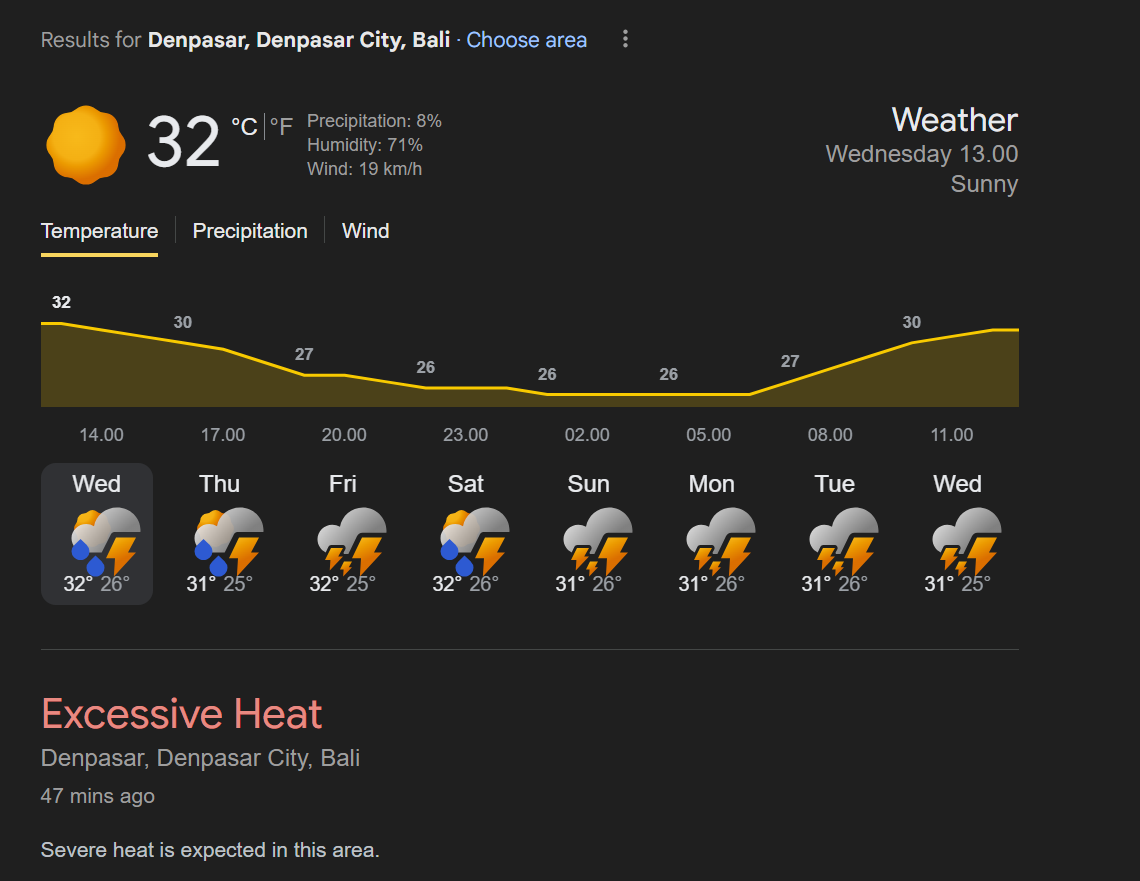
Bali Heatwave 2025: Why the Island Feels Hotter Than Ever
Lately since early October 2025, Bali has been simmering in unusually intense heat, triggering concern among residents, tourists, and climate observers alike. While tropical warmth is part of Bali’s charm, this recent spike in temperature feels different — hotter, harsher, more unrelenting.
Meteorological experts in Indonesia point out that one key factor is the pseudo-position of the sun during October and November — the sun is nearly overhead Bali, so solar radiation is stronger.
Additionally, the head of BMKG (Badan Meteorologi Klimatologi dan Geofisika - Indonesia’s meteorological agency) has confirmed that minimal cloud cover has allowed direct sunlight to reach the surface with less attenuation, making daytime heat feel more intense.
Across Indonesia, recent days have seen city temperatures ranging between 27 °C and 35 °C, with some urban areas hitting the upper bound.
Meanwhile, climate assessments suggest that Indonesia’s overall vulnerability to extreme heat is increasing — factors like deforestation, urban growth, and shifting rainfall patterns are all contributing to more frequent heat stress events.
Though a longer wet season is forecast for the coming months across much of the archipelago, Bali may still endure several dry weeks before moisture returns in force.
Impacts on Daily Life
With days of blazing sunshine and high humidity, more people are at risk of heat exhaustion, dehydration, and in extreme cases, heat stroke. Tourist hotspots, beach areas, and non-air-conditioned spaces are especially vulnerable.
More Demand on Utilities and Infrastructure
The hotter climate places added pressure on energy systems (especially air conditioning), water supplies, and public services. In rural areas, the drought alert threatens agriculture, water access, and landscape sustainability.
Environmental Stress
Higher sea surface temperatures and prolonged heat contribute to coral bleaching events, harming Bali’s reefs. (Though not strictly tied to this short heat event, warming oceans are already stressing marine ecosystems around the island.)
What To Do for Travelers
- Drinking plenty of water, seeking shade, and avoiding midday sun exposure.
- Tours, hikes, and beach visits are scheduled early or late in the day when heat is less intense.
- Carry sun protection (hats, high SPF sunscreen), dress in breathable fabrics, and plan for rest breaks.